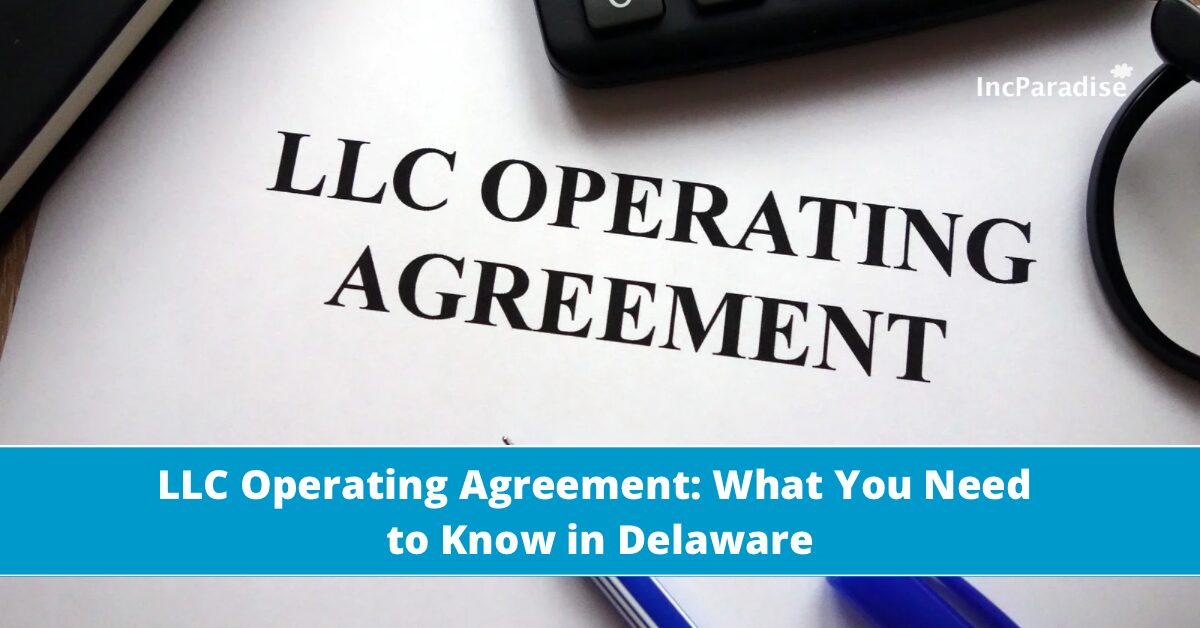Own an excellent idea and looking for the states to incorporate your company? Well, deciding where to incorporate or form a new business is no easy task. Several factors must be weighed before making your decision, such as tax requirements, constitutional laws, location, and state statutes. It is also essential to consider comprehensively about the benefits and drawbacks of your state of incorporation, and whether the chosen state can provide the flexibility, and ease of doing business without any legal system problems.
Many business owners assume that building the company in their home state is the best choice. However, it may not be the right choice for most of the entrepreneurs. But, there’s one state with unique advantages that organizations turn to time and time again that is Delaware.

Delaware’s courts, tax system, laws, policies, and most business-friendly environment have made it an attractive state for businesses to incorporate. Even more than half a million businesses, including half of all American, nearly two-thirds of Fortune 500 companies, publicly traded companies, and most technology startups have incorporated in Delaware.
No matter, Delaware is offering numerous advantages to the business owners. But before you move ahead to incorporate your company in Delaware, remember that nothing is perfect, in the same way, it has its disadvantages as well that would be shared after the benefits.
Here are some of the key benefits and drawbacks associated with incorporating in Delaware to help you better understand what’s right for your company.
Benefits of Incorporating in Delaware
Delaware offers numerous advantages to the business owners, and some of them are shared below. Keep on reading to explore the real gems of incorporating your business in Delaware and enjoy the benefits associated with it.
1. Flexibility
The first and foremost benefit of incorporating in Delaware is that Delaware’s corporate statutes provide a great deal of flexibility in the organization of a corporation and the rights and duties of shareholders and board members. Delaware’s Department of State makes the process even more convenient for the companies to fill out incorporation paperwork, which can be done in under an hour. In simple words, the business owners are not required to provide personally identifying information about the shareholders or members and company officers who incorporate or set up business accounts in Delaware.
Moreover, shareholders, officers, and directors don’t need to be residents of Delaware. Delaware allows just one person to be the only director, shareholder, and officer of a corporation. In other states, you may need a minimum of three people to hold the officer and director positions. So, this benefit can proved to be a game changer for all the business owners who want to enjoy the flexibility of the laws and orders while doing business.
2. Greater Privacy
One of the significant benefits of incorporating in Delaware is that Delaware corporations don’t need to disclose the names of the directors or officers on the formation documents. This creates a level of anonymity and privacy for your business entity. If you have done a good amount of research work, you would have come across plenty of states where the officers and directors in a company need to share their details with the public. But when you incorporate your business in Delaware, this will give a great degree of privacy according to your requirements.
3. Tax System
No matter the states like Nevada and Wyoming are attracting many investors and business owners to incorporate their business entity there due to the lack of state corporate income tax, but Delaware has some business-friendly tax law. Delaware has been called as the tax haven because the “Delaware loophole” allows companies to declare certain types of revenue in Delaware rather than in the state where the business actually occurred.
In other words, it does not collect corporate taxes from the companies that are formed in Delaware but don’t conduct business in the state. It also does not tax royalty payments or other “intangible assets” to the business owners though there is a franchise tax. Moreover, stock shares owned by people outside Delaware aren’t subject to Delaware taxes.
4. Court of Chancery
Another significant incentive to incorporate in the state of Delaware is that the laws are favorable to businesses, and, unlike other states, it has a separate Court of Chancery that hears cases involving corporate law. In fact, the corporate issues are governed only by judges; there are no jury trials and no punitive damage awards. This means that if your company is involved in any litigation, you’ll get a judge with a lot of expertise in complex corporate law matters.
Besides, corporate attorneys in the US are usually familiar with Delaware business law. Therefore, your company attorney is likely to already be familiar with Delaware law, as opposed to requirements in a different state. Thus Delaware’s Court of Chancery makes an ideal choice for those organizations to incorporate in Delaware who are looking to resolve legal issues justly and quickly.
5. Investors
Venture capitalists and investment banks tend to prefer to invest in companies which are incorporated as a C Corporations in Delaware above all other states and business structures. So, if you are planning to raise money from outside investors, incorporating in Delaware is the best choice instead of having to convert your company when an investment banker or venture capitalist demand that.

Are There Disadvantages to Incorporating in Delaware?
With all the above points, you may be overwhelmed with how seemingly advantageous Delaware is for corporations. But there are some drawbacks also which you should know before deciding the state to incorporate your business entity. If you are setting up a large corporation with thousands of shareholders, you will see benefits from incorporating in Delaware. However, these same benefits may not mean much for smaller businesses.
Well, the principal drawbacks occur when you incorporate your business in Delaware, but your business entity isn’t actually headquartered in Delaware. Let’s suppose, your company is physically located in Singapore, but you choose to incorporate your business in Delaware. In this case, you’ll need to follow the reporting requirements for both states. Plus, you are required to pay the annual franchise tax in both states.
Top Benefits and Drawbacks of Incorporating in Delaware Share on XTo be precise, for big companies, Delaware offers numerous advantages while doing incorporation in Delaware from tax flexibility, the court system, policies, to rights. However, the average small business may never notice any of these benefits; in fact, incorporating in Delaware can add cost and complexity.
Conclusion
By now that you must be having a profound idea about the benefits and drawbacks of incorporating your business entity in Delaware. Well, forming a corporation is an exciting step in the life of your business, but you should think carefully before selecting a state for your incorporation especially if you are setting up a smaller business.
For some companies, especially those with outside investors and a nationwide scope, Delaware’s predictable body of law and corporation-friendly tax structure make it a clear choice.
So, if you are seriously considering to incorporate your business and looking for the best state in order to enjoy the benefits associated with it, then incorporating your business in Delaware will be your best decision ever. If you are looking for more information, you can hire the professional like IncParadise and avail all the services from registering and incorporating your businesses with more ease!








